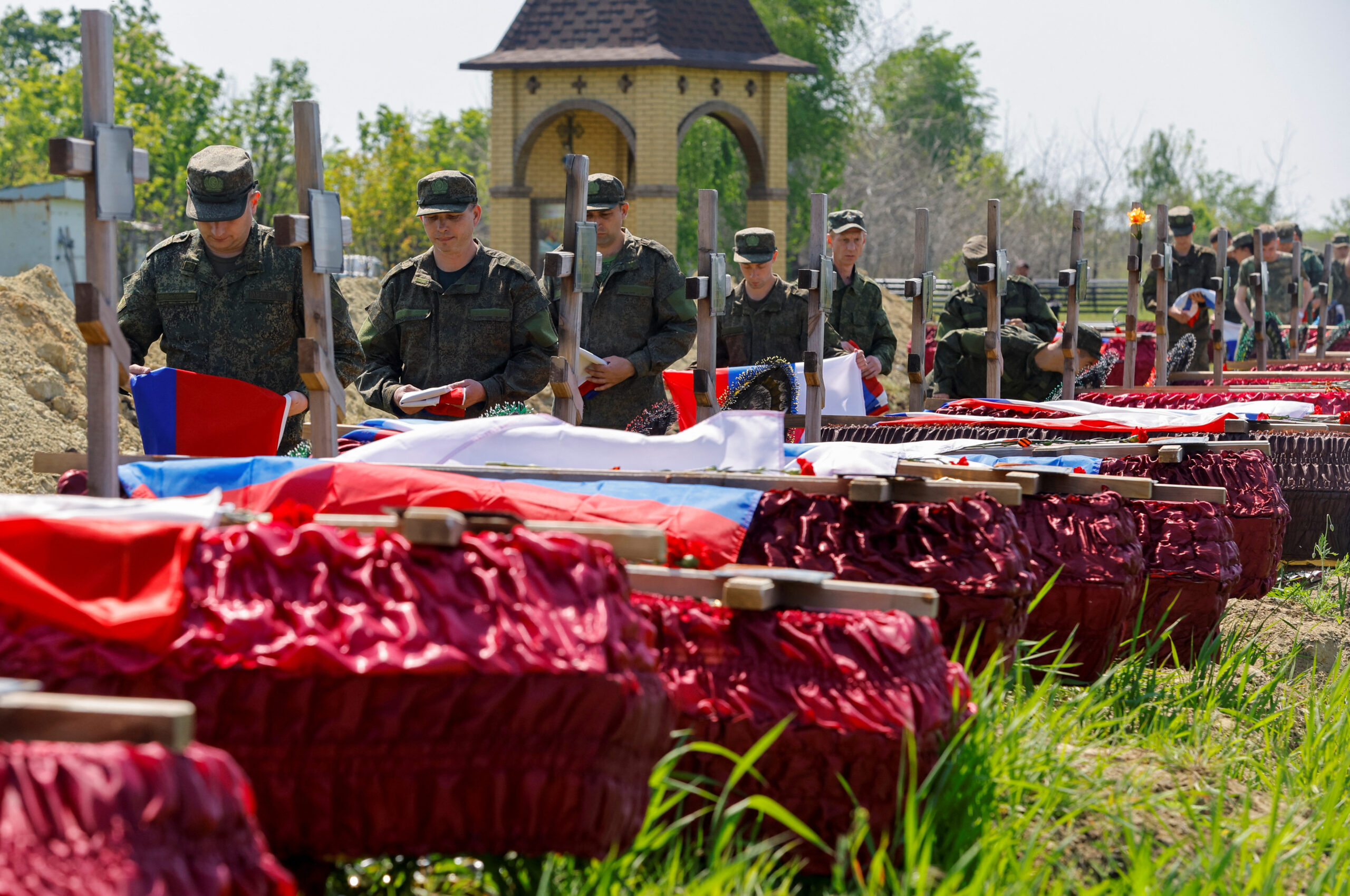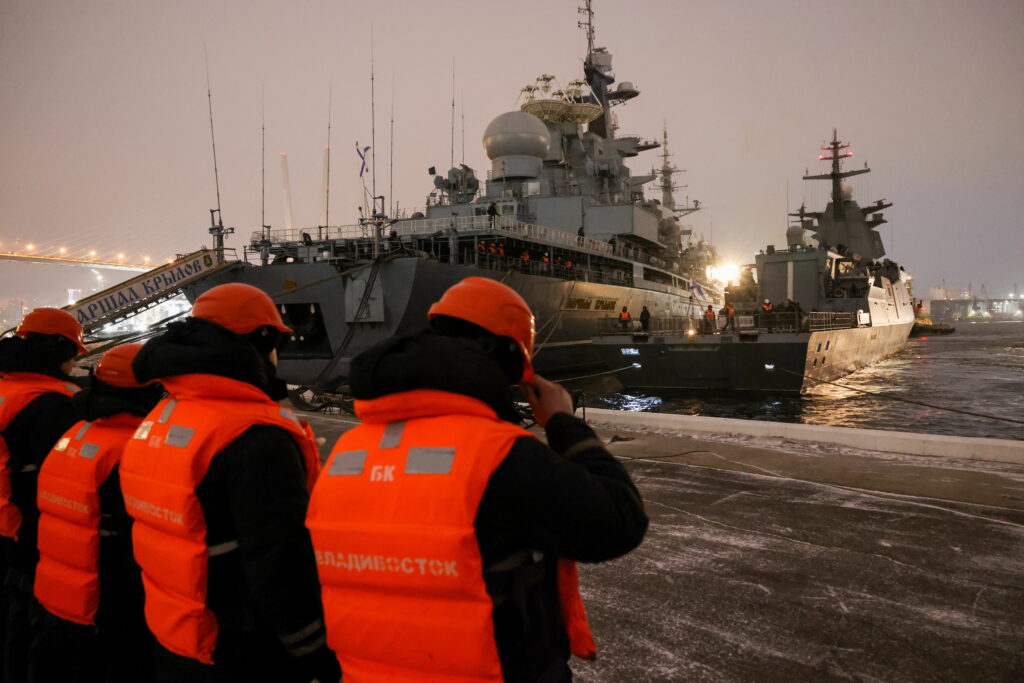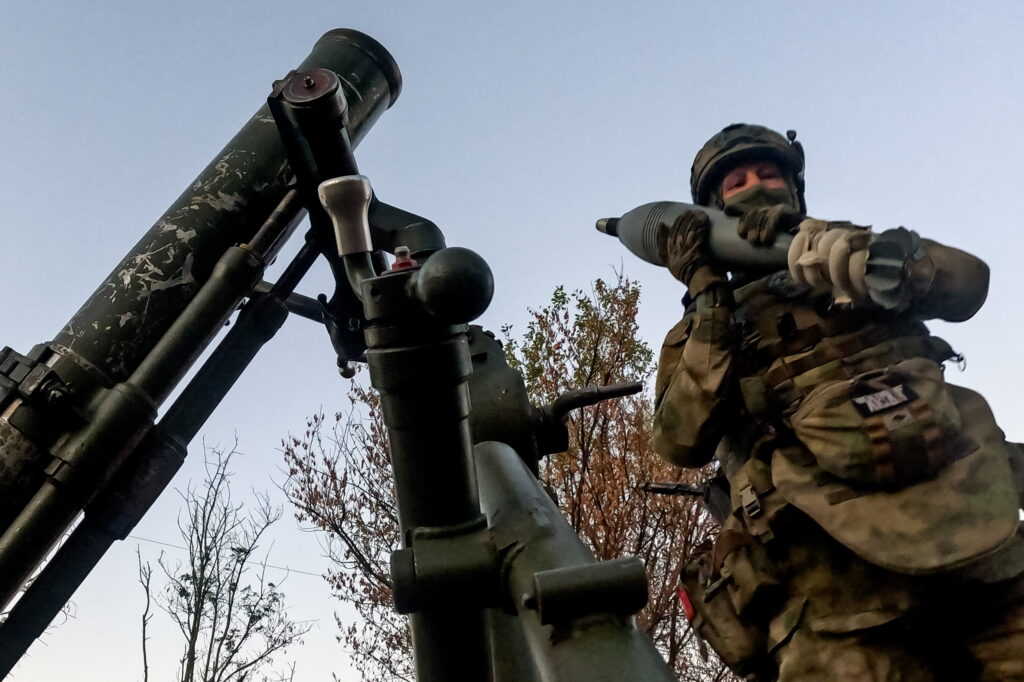By the end of the first year of the full-scale war with Ukraine, Russian community of intellectuals came to realise that the authorities had begun to actively exploit the theme of death as something lofty and purifying. «They will die a pathetic death, and we will go to heaven» might have seemed like a joke, but the discourse claiming that death in battle makes life valuable, as well as the statements made by many secular and spiritual leaders about death as an achievement, indicate that something that is ideologically prevalent in Putin’s Russia is a kind of death worshipping, or «thanatopathy» (the latter term was coined by sociologist Dina Khapaeva). If we take a close look at the underlying realities, we will see that attempts to present violent death as something natural and even sublime emerged in Russia in the process of its current fascistization, with parallels of the 1930s Germany being self-evident. And yet, Russia is not a classic indoctrinated totalitarian society akin to those existing in the first half of the twentieth century, when a passion for struggle and death was widespread (let us just recall the lines from a song: «We will boldly go into battle for the Soviet power, And as one we will die in that struggle!,» which did not even raise the question of whether this outcome would be victorious or not). Instead, modern-day Russia is a commercially driven country where everything is decided by money. Therefore, the analysis of ideologemes should be followed by a financial assessment.
The Kremlin launched a full-scale war against Ukraine, promising that the «special military operation» would be conducted by a contract-based army. The conscripts who «happened» to be sent to the frontline were for the most part sent back home. However, due to huge personnel attrition, the Russian authorities soon allowed the recruitment of prisoners by private military companies, and then announced the mobilisation, which many regarded almost akin to the 1941 draft. Experts predicted, in various ways, that the «partial» mobilisation would be followed by a universal one, yet this has not happened so far. On the contrary, the military leaders began to say that staff shortages in the army had been overcome. How could this be possible, especially in view of the losses that the Russian servicemen continue to suffer? The answer might lie in the strange nexus between the worshipping of death and the worshipping of money.
When assessing the first measures taken by the Russian authorities back in 2022, it should be noted that the contract-based army that invaded Ukraine in February and the one that was formed by the end of the same year are quite different armies. On the one hand, a contract serviceman of the 2019, for example, was a person who had previous experience of military service and received a monthly salary of 38−42 thousand roubles before taxes. Considering that the average salary in Russia at that time was 47,500 roubles, the Ministry of Defence would have received a fairly well-trained soldier even for less money (of course, one should bear in mind that the soldiers were fully provided for and did not need to spend money on everyday needs). If a serviceman died, his relatives could count on a compensation of 3 million roubles. The conditions for a contract serviceman in late 2022 were quite different: the monthly pay could not be lower than 195,000 roubles (three times as high as the official average wage), and, moreover, the presidential one-time payment alone in case of a soldier’s death was 5 million roubles). Furthermore, anyone was allowed to become enlisted in the army, even those with no experience of military service. In other words, the price of a Russian soldier increased manifold, while their professional qualities declined at a scale that is difficult to estimate. On the other hand, before the full-scale war in Ukraine the army was clearly divided into contract-based and conscription-based segments (the 2020 conscripts received 2,086 roubles per month, indexed to inflation, while contract servicemen earned dozens of times more). In contrast, everything has changed for the current army: at present, soldiers drafted under mobilisation measures are de facto regular contract-based servicemen, entitled to minimum pay and compensation in cases of injury and death (moreover, it is the generosity towards mobilised men that prompted the authorities to increase the salaries of the «old» contract-based servicemen in October and November 2022). In other words, death in war in contemporary Russia is not only an «honourable fate,» but also a profitable way to end one’s life.
How profitable is it? That question is well worth posing right now, and the answer will prove to be rather surprising.
Let us consider a hypothetical situation of a citizen who gets mobilised and is soon sent to the occupied parts of Ukraine, fights there for five months and finally fails to dodge a stray bullet (missile/shell). While his life acquires a special significance, his death will be accompanied by impressive payments. First of all, it should be noted that a soldier receives 195−200 thousand roubles upon mobilisation, which means that he is entitled to 1 million roubles at the minimum rate for five months of service. This is followed by a presidential one-time payment of 5 million. In addition, relatives of the soldier must receive an insurance payment (at present, most of the military are insured by the Sogaz insurance company), and the amount of compensation may not be less than 2.968 million roubles. At the same time, no one has cancelled «regular» compensation in the case of death of a serviceman taking part in military operations (as of 1 January 2023, it amounted to 4.698 million roubles). Finally, relatives of the deceased soldier will receive at least 1 million roubles from the regional authorities (in some cases, 2 million, and sometimes even 3 million). Further on in these calculations, we will use the minimum amounts only, and the reason will soon become clear. In the end, according to the current laws and regulations, relatives of a dead soldier who served for five months should receive approximately 14.8 million roubles. And this is not the end: his children can then claim an allowance (2.8 thousand roubles a month), and the widow can claim a military pension (starting from 21.4 thousand roubles a month). However, it is difficult to tell how long these benefits will be paid out, so we will limit this to a period of three years assuming, as an example, that the deceased had a wife and one child. The total amount of payments in that case will rise to 15.7 million roubles. Other benefits (e.g. a 60% reimbursement of utility bills, cheaper transport fares, etc.) will not be taken into account here.
Now, let us look at the alternative, i.e. the life that our hero would have had if Putin had not started the «denazification» of the brotherly country. Let us assume that the man went to war at the age of 35−40 years, from a region that can pay 1 million roubles in case of his death (a majority of regions in Russia). For example, we can assume he departed from the Ivanovo region, where the official average salary at the end of 2022 was 35 thousand roubles (incidentally, a similar situation prevails in the Kostroma, Orel, Tambov, Bryansk and Pskov regions, the entire North Caucasus Federal District and many Siberian regions, where the average salary does not exceed 40 thousand roubles a month). Since mobilisation covered men, and men’s wages and salaries across the country are, on average, by 28% higher than women’s, let us assume that our soldier earned 40−42 thousand roubles a month in his «civilian life». In this case, all the aforementioned payments will be equal to 31 years’ worth of his paycheck (in fact, the period is longer because personal income tax would be due on that paycheck). This means only one thing: if a man goes to war and dies at the age of 30 to 35 (i.e. at the most active age and best health status), his death will be more economically profitable than his further life. In other words, Putin’s regime does not only glorify and ennoble death, but also turns it into a rational choice. For the sake of comparison, in countries where the government and society devote their main efforts to improving the lives of their citizens, a soldier’s death is valued at 2−3 years’ worth of an average citizen’s income (in the United States, for example, a widow would receive a one-time compensation of USD 100,000).
While all of the above applies only to servicemen of the Armed Forces of the Russian Federation and the Rosgvardia, payments are also made to relatives of those who signed a contract with the Wagner Group (in which case the amounts are lower: according to widespread reports, the compensation amounts to 5 million roubles, and is always paid out in cash). In other words, the «purchase of lives» has been turned into an industry in Russia, and the only question is whether the payment of the average salary for the entire future working life is really an «equivalent amount» or whether the authorities will have to raise it. The latter prospect seems rather remote, as the current conditions already look attractive. However, yet another thing must be borne in mind: the Russian army is, and will be, attracting citizens from relatively poor regions, most of them with low incomes, even by local standards. Accordingly, the cohort of servicemen who will have gone through all the hardships of military service will differ significantly even from the average Russian citizen, and the desire to arrange another «victorious» military march will only grow.
Meanwhile, the Russian authorities do not view this factor as a risk. On the contrary, they consistently endeavour to turn the current practice into a norm by providing even more benefits to servicemen. For example, it has been announced that not only government payments but also any assistance to the mobilised, regardless of its source, is exempted from personal income tax, and the received «funeral expenses benefit» is not included in the bankruptcy estate in case of the recipient’s bankruptcy. Paradoxically, the Kremlin seriously expects a positive economic outcome from the creation of a high-salaried contract army. If we assume that the number of mobilised and contract-based soldiers ranges from 400,000 to 450,000, then their minimum total allowance will amount to approx. 1 trillion roubles a year. The government will have to allocate about the same amount for compensations in case of killed or wounded soldiers, even if there are 50,000 or 100,000 such people in a year. These sums represent nearly 10% of pre-war federal spending, and some people are already predicting the emergence of a social group of «the young rich» and even making plans for how this money will contribute to long-term investment programmes. All in all, the «deathonomics» is becoming a kind of «new normal» for the Russian government and the economists serving its interests.
Of course, it would be premature to draw far-reaching conclusions on the basis of merely a year and a half of war, although history has shown that while all sorts of payments and compensations are easy to increase, attempts to reduce them are hardly realistic. All in all, one thing is clear: after the essential «ideological preparation,» the Russian authorities have swiftly constructed a system where life is not always an optimal economic choice for the individual. There should be no doubt that the revolution of consciousness that will accompany this discovery will affect the entire social sphere, from healthcare to the pension system. The country has become accustomed to deaths, with their economic appeal being clearly demonstrated.










